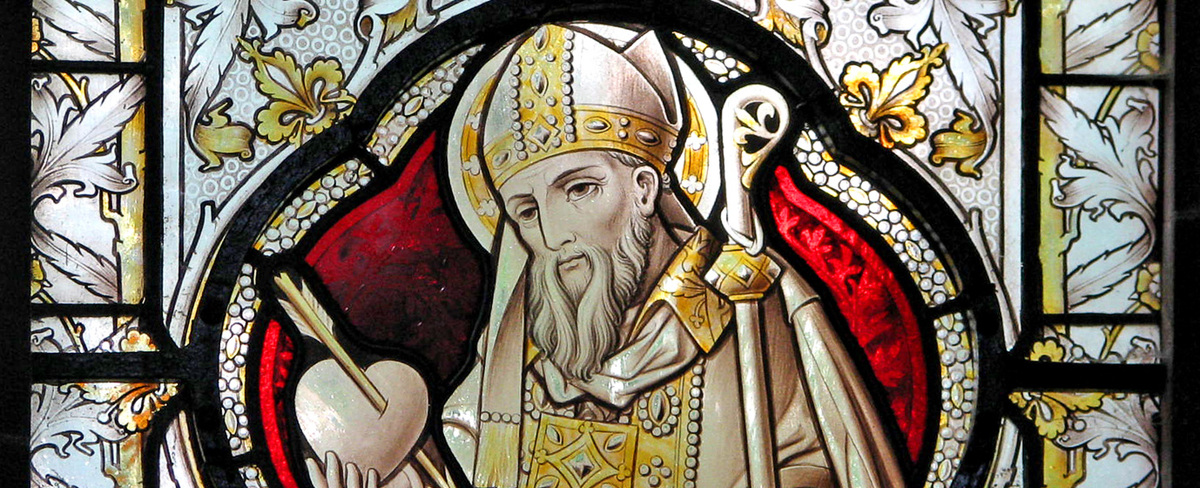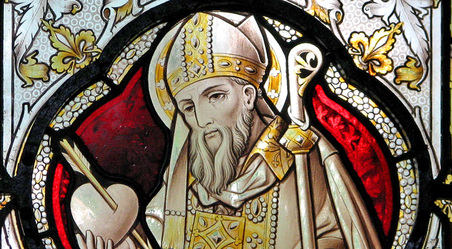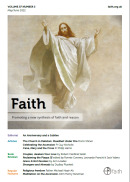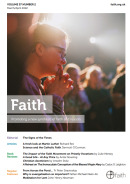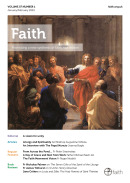Featured
Mercy, Bishops and the Vulnerable
Blessed Clemens von Galen died 70 years ago this month, in March 1946. His early life seems so remote from anything today that in many ways it seems almost hopeless to suggest him as a role model for today’s bishops. He was born in 1878 into one of Germany’s old aristocratic families with a tradition of service in both Church and nation. His boyhood – the ninth of eleven children – was lived in the tradition of his ancestors, in a castle lacking modern comforts and a countryside with a beauty untouched by motorways, pylons or aircraft noise, where the motor- car was unknown.
But as a bishop, he has plenty to teach us. He had been an early opponent of the Nazis, denouncing their racial bigotry, their obsession with attempting to revive pagan myths to replace Christian worship and their nationalising of various properties belonging to the Church. In 1934, as Bishop of Münster in his own native Westphalia, he fought the government’s attempts to impose a national education scheme which taught an anti-Jewish message, and in 1937 he was active, with Cardinal Faulhaber of Berlin, in helping to draft the papal denunciation of Nazi ideas and ideology, Mit Brennender Sorge.
Tenderness with Life
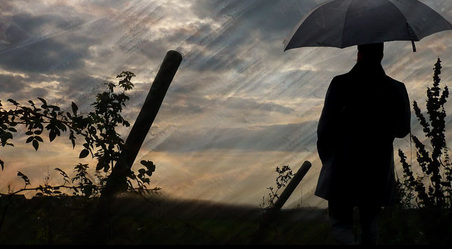
As I have listened to debates and arguments about assisted suicide – many have been reasonable, measured and well considered – something has occurred to me. It is the meaning of the expression, the ‘right’ to die. Death is not a right – it is a certainty! We are all going to do it. Everything living, which has lived, and which will live, must undergo change and die. Only God is eternal and unchanging. Our profession is to die; our whole life journey a preparation for this final truth. ‘Thou owest God a death,’ says Prince Hal to Falsta . Simply put, but searingly and inescapably true. ‘To die’, he says, “is common as to live”. The ‘right’ to die actually means, if we’re brutally honest, that some people are seeking the legal ‘right’ to kill another human being.
Holloway on Vocations
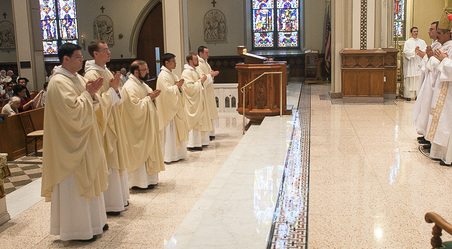
In the beginning of the Church’s life, the personality of Our Lord Jesus Christ attracted ‘vocations’. That is to say, He drew men and women to follow Him both as disciples and as apostles by the power, truth and loveableness of His majestic personality. Miracles alone may create awe, but do not create loving, steadfast disciples. To say we seek ‘vocations’ is to say that Christ is calling insistently for apostles, men and women, to ‘come, follow Me’ and from the day when Christ called Peter, James and John from theirnets to the raising up of the great Orders and Congregations
The Drama of Original Sin
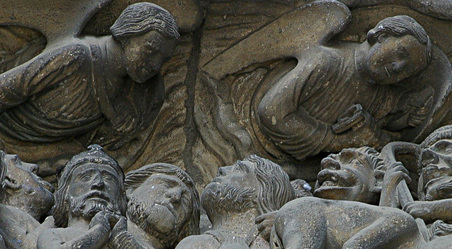
It is easy to be pessimistic. William Golding would say ‘Man is a fallen being. He is gripped by original sin. His nature is sinful and his state perilous.’ That was Luther’s conclusion also. He could identify with St Paul’s ‘I am carnal, sold under sin. I do not understand my own actions. For I do not do what I want, but I do the very thing I hate’ (Rom. 7:14-16). He concluded that what we would term concupiscence was in fact a manifestation of the totally sinful condition which burdens humanity: ‘carnal, sold under sin.’ Calvin would go a step further and argue that some are in fact predestined to damnation from the beginning, which became the position of the Jansenists.
Depression and Evolution
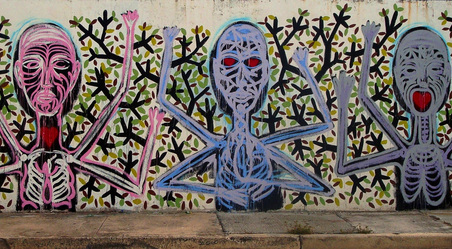
Blessed John Henry Newman was so influenced by the emerging theory of human evolution by Darwin that he used the metaphysics of an evolutionary principle in his Essay on the Development of Christian Doctrine (1845), o ering a profound insight into the organic development in the doctrine and life of the church. There is a dearth of orthodox modern theology that contains a similar metaphysical principle of evolution. The Faith movement, of course, does offer such a theology.
St John Paul's Biographer
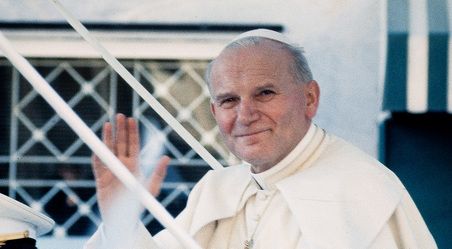
Catholic writer, lecturer and papal biographer George Weigel is a diffcult man to pin down. He’s in America, he’s in Rome, he’s in Poland . . . We caught him just as he was leaving a meeting of The Keys, the Catholic Writers’ Guild, in London, where he had been guest speaker. Would he be willing to give an interview to FAITH magazine? Yes, of course . . . but he was hurrying off . . . would we email?
Book Reviews

Keith Ward is attempting something in this book which is important for the rebuilding of western civilization. He aims to synthesise prominent aspects of contemporary philosophies of perception and science in a way that supports a realm transcending the sensed physical realm. He edges towards creating room for those twin doctrines of Christian natural philosophy, the transcendent Creator with Man in his image. Deepening such key beliefs through taking seriously the profound impact of modern scientific method upon Greco-scholastic epistemology is highly unusual, yet in tune with the goals of the Faith Movement.
A Distinctive Way of Looking at Things

Laudato Si’, Pope Francis’ 2015 encyclical, considers the connection between contemplation and the sacraments and attests that man’s stewardship of creation is not only a material responsibility but also a spiritual responsibility. Mid-point in the encyclical Pope Francis suggests that ‘There needs to be a distinctive way of looking at things, a way of thinking, policies and education program, a lifestyle and a spirituality which together generate resistance to the assault of the technocratic paradigm’ (111). Conrad Pepler, O.P., an English Dominican friar who wrote in the mid-twentieth century, also recognised these concerns, and he proposed that a ‘distinctive way of looking at things’ necessarily includes the use of the imagination. A closer look at Pepler’s writings may be ‘a distinctive way’ of looking at things, especially since he proposes that the imagination that is cultivated by grace is able to maintain the connections between creation and the sacraments against a background of increased industrialisation, technology and activism.2
-
Mercy, Bishops and the Vulnerable
Editorial FAITH MAGAZINE March - April 2016
Mercy, Bishops and the Vulnerable
Blessed Clemens von Galen died 70 years ago this month, in March 1946. His early life seems so remote from anything today that in many ways it seems almost hopeless to suggest him as a role model for today’s bishops. He was born in 1878 into one of Germany’s old aristocratic families with a tradition of service in both Church and nation. His boyhood – the ninth of eleven children – was lived in the tradition of his ancestors, in a castle lacking modern comforts and a countryside with a beauty untouched by motorways, pylons or aircraft noise, where the motor- car was unknown.But as a bishop, he has plenty to teach us. He had been an early opponent of the Nazis, denouncing their racial bigotry, their obsession with attempting to revive pagan myths to replace Christian worship and their nationalising of various properties belonging to the Church. In 1934, as Bishop of Münster in his own native Westphalia, he fought the government’s attempts to impose a national education scheme which taught an anti-Jewish message, and in 1937 he was active, with Cardinal Faulhaber of Berlin, in helping to draft the papal denunciation of Nazi ideas and ideology, Mit Brennender Sorge.
In 1941 the extent of the Nazi killing of the incurable and the mentally ill became known. For some while, families had been suspicious. A letter would arrive from some institution where a relative had been receiving care, reporting the sudden death and offering to send the ashes for family burial. With wartime conditions making travel difficult, and with concern that telephone conversations might be monitored and letters intercepted, people nevertheless talked and communicated their concerns. The conventional death notices in newspapers expressed, in carefully coded ways, their conviction that something was not normal about the death: ‘Suddenly, after a period of excellent health, our beloved son...’
Opposition
In a country where a police swoop could result in incarceration in a concentration camp, and where neighbours who talked about it could also disappear into ‘protective custody’, opposition to official policies took immense courage. But Bishop von Galen spoke from his pulpit, and did not mince his words. Describing euthanasia as ‘this ghastly doctrine’ which ‘tries to justify the murder of blameless men and would seek to give legal sanction to the forcible killing of invalids, cripples, the incurable and the incapacitated’ he went on:
‘I have discovered that the practice here in Westphalia is to compile lists of such patients who are to be removed elsewhere as “unproductive citizens,” and after a period of time put to death. This very week, the first group of these patients has been sent from the clinic of Marienthal, near Münster... I am assured that at the Ministry of the Interior and at the Ministry of Health, no attempt is made to hide the fact that a great number of the insane have already been deliberately killed and that many more will follow.’
Freedom and justice
It was not just against euthanasia that he preached, but against other Nazi atrocities: ‘None of us is safe — and may he know that he is the most loyal and conscientious of citizens and may he be conscious of his complete innocence — he cannot be sure that he will not some day be deported from his home, deprived of his freedom and locked up in the cellars and concentration camps of the Gestapo.’
His message was that a country must live under the rule of law, and that this must guarantee safety for everyone: ‘Justice is the only solid foundation of any state. The right to life, to inviolability, to freedom is an indispensable part of any moral order of society.’ In another sermon denouncing the Nazis he said, ‘We see and experience clearly what lies behind the new doctrines which have for years been forced on us, for the sake of which religion has been banned from the schools, our organisations have been suppressed and now Catholic kindergartens are about to be abolished — there is a deep-seated hatred of Christianity, which they are determined to destroy.’
Copies of these sermons were widely distributed – and, smuggled abroad, made Bishop von Galen known and admired in Britain and in occupied Europe. He was dubbed the “Lion of Münster”, a name that stuck.
Noble
It does need to be understood that the Nazis were by no means universally loathed in Germany, even among those who had not voted for them and did not admire their style. Many Catholic people thought them crude and unpleasant, but still saw them as a bastion against Bolshevism. And, alas, anti-Jewish attitudes – often expressed in horrible language – were by no means unknown in Catholic publications and in Catholic organisations and preachers in the 1930s, and not only in Germany.
Nor was euthanasia universally opposed: a feeling that the old and frail, and especially the mentally ill, lived miserable lives and would be better off dead, was quite widely expressed in many civilised countries. In the circumstances of war, with healthy young men dying in great numbers on the battle field, and food and fuel in short supply, and general shortages of household necessities... it was quite tempting to think of plump people in mental hospitals as being over- protected ‘useless eaters’.
Bishop von Galen seems to have been seen by some Germans as representing a possibly noble, but rather too pious, vision of life. On the other hand, he was certainly a great hero to the younger anti-Nazi campaigners, such as the ‘White Rose’ group at Munich University (Hans and Sophie School – who were, incidentally, also inspired by the writings of another great Catholic, John Henry Newman) and the youth group at St Ludwig’s Church in the same city who combined opposition to National Socialism with devout Catholicism and enthusiasm for the emerging liturgical movement.
Honoured
But even if regarded by some as old-fashioned, the Bishop was hugely popular, and his family represented a link with Germany’s past which could not be attacked without damaging deep and passionate local and national loyalties. He escaped arrest and execution simply because – as subsequent research into captured Nazi documents revealed – it was felt that it would provoke widespread unrest and possibly even a general uprising if the authorities were to swoop in this way. So, by the war’s end, he was in his bombed and ruined city, a figure the victorious Allies could meet, the ‘Lion of Münster’.
After Germany’s collapse in 1945, Bishop von Galen became a figure of hope for his people, speaking up for prisoners-of-war, for German refugees and for the homeless. He was honoured by Pope Pius XII by being made a cardinal. With great difficulty, and after prolonged negotiations with the new Allied authorities running Germany, he was finally able to get to Rome to meet the pope, and on return home the people of Münster gathered in the streets to cheer him, decorating their ruined homes with whatever they could to honour him. In poor health, he died not long after his return home, in March 1946.
Von Galen was beatified by Pope St John Paul II in 2004. His tomb in Münster’s great cathedral is never without pilgrims and visitors. A Bishop to admire and an example to follow: loved by the best of his country’s idealistic youth, a true patriot, a man of the Church with a great loyalty to the Pope.
Britain
It was actually the British who dubbed von Galen the ‘Lion of Münster’, and it was British aircraft that dropped copies of his sermons across Germany. While this was of course part of a propaganda war, there was nevertheless a sincere feeling in Britain, among Catholics and Anglicans alike, that this was a truly noble Christian figure who represented a finer and better Germany that might one day emerge after the defeat of the Nazis and who meanwhile spoke up for that country’s soul.
It is not always easy in Britain today for bishops to speak out in defence of some important matter connected with human life: they may feel they are regarded as old-fashioned, or opposed to current national values and interests. We live in times and in a society when the prevailing winds are against the Christian truths, and so our bishops are faced with very difficult and challenging, often hostile, situations. It requires wisdom, clarity and courage to be a shepherd in these days. A Bishop risks being misunderstood. He may know that some of his own flock do not really agree with what he is saying, or agree only partially. And it may be small comfort if people far away call him a ‘lion’ especially if, at home, his efforts to speak out seem to be inef ective. And if honour comes, it may be a bit late, when hideous misery has already swept over the country he loves.

